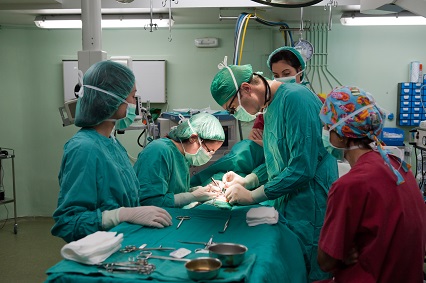This course is part of the RCOG Core Knowledge series.
Postoperative complications are possible following surgery. The rapid recognition and management of complications is an important skill required of all clinicians.
Identification of risk factors preoperatively, individualised careful planning and use of prophylactic drugs such as antibiotics and anticoagulation can decrease potential complications.
This course will help you to be more confident in recognising postoperative complications and provide a secure framework for the investigation, management and due process required in dealing with these situations.
When you have completed this course, you will be able to:
- recognise common postoperative complications
- arrange appropriate investigations
- start the management process for common postoperative complications
- identify risk factors preoperatively and decrease risk of complications
- describe the importance of incident reporting and risk management
- effectively communicate using the duty of candour framework.
Sharifah Jalil (2019, 2023)
Dr Sharifah Z Syed Abdul Jalil MRCOG is a Consultant Obstetrician & Gynaecologist in Ysbyty Gwynedd, Bangor.
This course is intended to help clinicians gain core knowledge for O&G training and the MRCOG examinations. It can also be used by O&G consultants to refresh their knowledge of the area or for teaching.
The content of this course relates to the following Capabilities in Practice (CiPs) and key skills.
CiP 1: Clinical skills and patient care
History taking, clinical examination and diagnosis
Facilitates discussions
Provides treatment
CiP 2: Working in health organisations
Understand healthcare differences across the UK
Adheres to legal, professional requirements
Participates in clinical governance processes
Working in a digital environment,
CiP 3: Leadership
Demonstrates insight
Effective use of resources
CiP 5: Human factors
Demonstrates insight into decision making
Understanding of human factors in adverse events
Team working
Understands systems and organisational factors
CiP 6: Developing self & others
Commits to continued learning
CiP 7: Innovation and research
Critical thinking
CiP 9: Emergency gynaecology and early pregnancy
Manages non-pregnancy vaginal bleeding
Manages acute infections
Manages complications of treatment
CiP 10: Emergency obstetrics
Manages emergency birth, postpartum problems
Manages maternal collapse
CiP 12: Non-emergency obstetrics
Manages a postnatal consultation
CiP 13: Non-discrimination and inclusion
Promotes non-discriminatory practice
Understands cultural determinants of health
Awareness of social wellbeing
CiP 14: Health promotion
Aware of globalisation of healthcare
Product Details:
Product Name
Price
Management of postoperative complications - 12 Month Access
£64.80
Login to purchase
| Product Name | Price | |
| Management of postoperative complications - 12 Month Access | £64.80 | Login to purchase |

